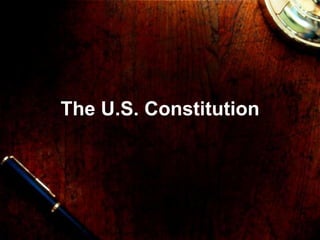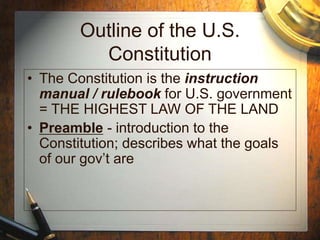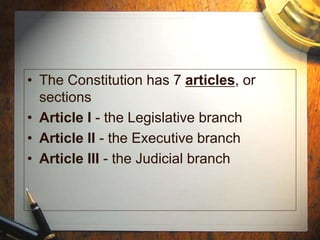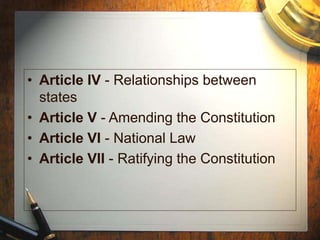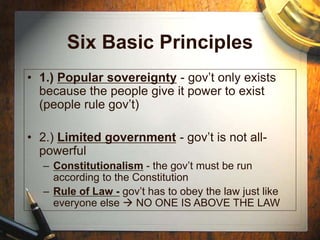The document outlines key aspects of the U.S. Constitution, including its seven articles that divide power among the legislative, executive, and judicial branches. It also discusses six basic principles like popular sovereignty, limited government, and separation of powers. Influences on the Constitution are noted, including John Locke's social contract theory, Montesquieu's support for separation of powers, and Rousseau's skepticism of direct democracy.
